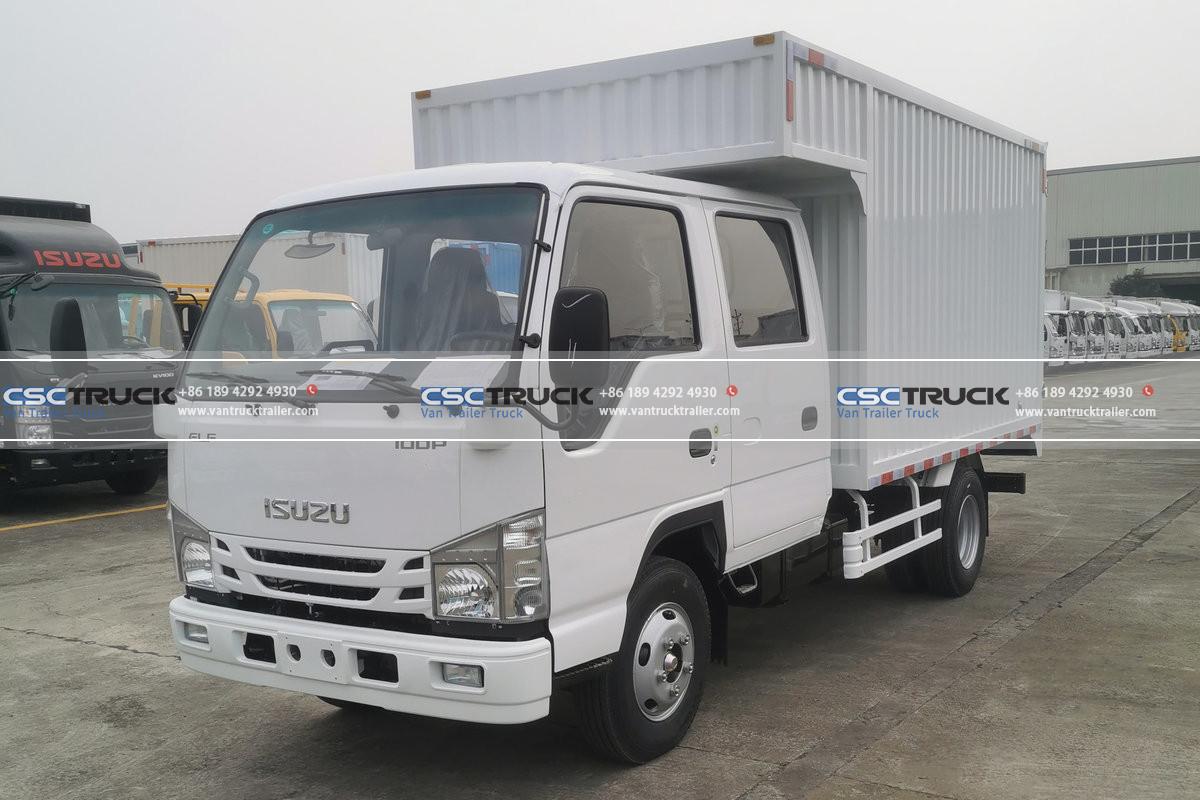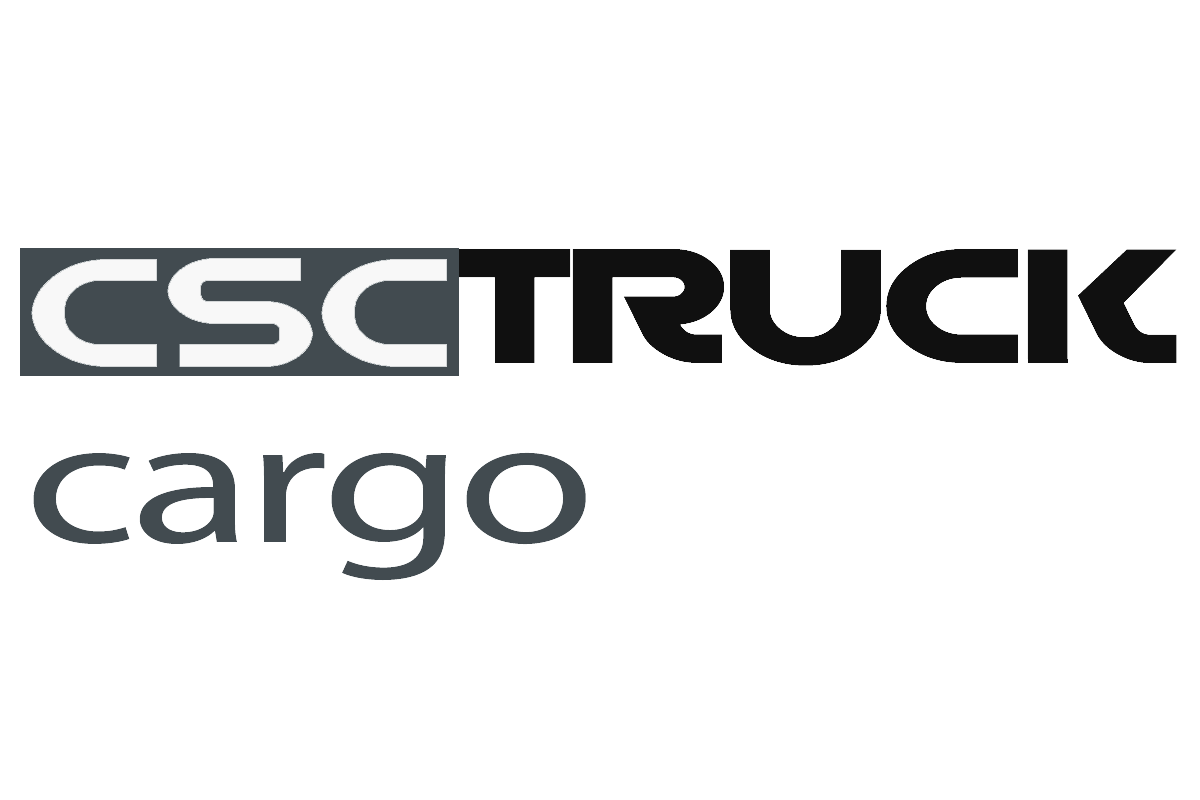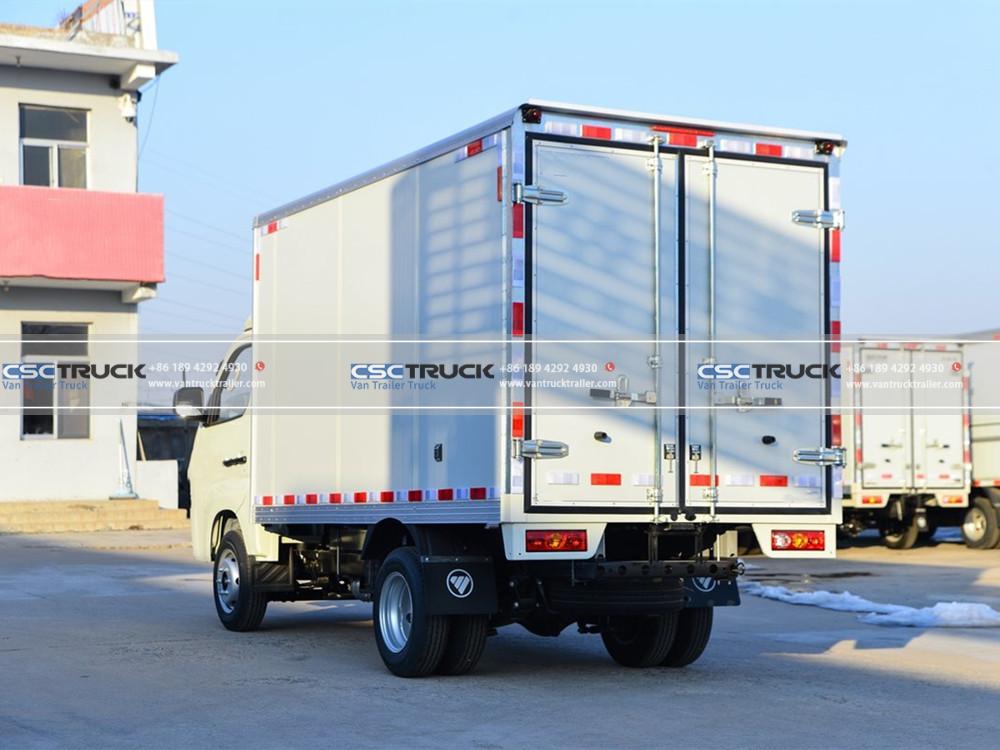In the world of modern business, logistics and distribution are critical components that can determine the success or failure of an operation. Efficient transportation ensures that goods reach customers on time, inventory is managed effectively, and supply chains remain uninterrupted. A cargo truck is one of the most powerful assets a business can invest in to streamline its logistics and distribution operations. With the right cargo truck, companies can ensure timely deliveries, reduce transportation costs, and increase overall operational efficiency.
This article explores how a cargo truck can significantly boost your business’s logistics and distribution efforts. We will examine how cargo trucks enhance delivery efficiency, reduce costs, provide flexibility, and integrate seamlessly with other vehicles such as ISUZU tow trucks and ISUZU crane trucks to provide comprehensive logistics solutions.
The Role of a Cargo Truck in Efficient Distribution
At its core, a cargo truck is designed to transport goods and materials from one location to another, making it the backbone of a company’s distribution network. When properly integrated into a business’s logistics system, cargo trucks ensure that the transportation of products is efficient, reliable, and cost-effective.
Enhancing Delivery Speed and Reliability
One of the most significant advantages of owning or utilizing a cargo truck for logistics is maintaining control over delivery schedules. Relying on third-party carriers can lead to delays and unreliable shipping times, whereas a dedicated cargo truck allows businesses to streamline their own operations. By using in-house cargo trucks, businesses can ensure faster response times, reduce dependency on external service providers, and guarantee that products are delivered promptly.
This flexibility is particularly beneficial for companies that have tight delivery windows or require frequent shipments. A cargo truck can be scheduled and dispatched according to business needs, reducing any uncertainty regarding delivery times and ensuring consistent service to customers.
Managing Volume and Storage Needs
Another significant benefit of using a cargo truck is the ability to transport larger quantities of goods at one time. Whether you are distributing bulk items to retailers or shipping large orders to customers, a cargo truck is versatile enough to accommodate a wide range of materials. Its spacious cargo area is designed to handle everything from boxed products to oversized equipment, making it ideal for businesses that need to manage high volumes of goods.
For industries like retail, manufacturing, or food distribution, where demand fluctuates, cargo trucks are invaluable for scaling logistics to match inventory levels. A cargo truck allows businesses to efficiently organize and store goods for transportation, making it easier to distribute large shipments or manage restocks based on seasonal demand.

Cost-Effective Logistics with a Cargo Truck
In any business, managing costs is a priority, and logistics expenses are a significant portion of the overall budget. Cargo trucks can help businesses reduce logistics costs in several ways, offering long-term savings and a high return on investment.
Reducing Shipping Costs
Outsourcing transportation to third-party carriers or delivery services can be expensive. Between fuel costs, service fees, and additional charges, these services can eat into a business’s profit margins. By investing in a cargo truck, businesses can reduce these expenses by managing their transportation needs in-house. This not only cuts down on the per-delivery cost but also gives businesses the flexibility to optimize routes and adjust schedules based on actual needs.
A cargo truck offers businesses the chance to improve efficiency and reduce idle time, which translates into lower fuel consumption and fewer operational costs. By utilizing route-planning software and maintaining a fleet of well-maintained vehicles, companies can further improve the fuel efficiency of their cargo trucks, reducing the environmental footprint and driving down transportation costs.
Minimizing Dependency on External Logistics Providers
Relying on external logistics providers can sometimes result in delays, lack of flexibility, or poor service quality. For businesses that require tight control over their supply chains, this reliance can lead to inefficiencies and customer dissatisfaction. By incorporating cargo trucks into the logistics network, businesses reduce their dependency on third-party providers, increasing autonomy and improving service reliability.
Furthermore, with a cargo truck, businesses can manage their delivery schedules and stock levels more effectively, resulting in fewer emergency shipments and better forecasting of transportation needs. The ability to control both timing and frequency of deliveries means that companies can operate with more predictability and greater cost control.
The Flexibility and Versatility of Cargo Trucks
One of the standout qualities of cargo trucks is their flexibility. They can be used across a variety of industries for a wide range of applications, from food delivery to construction materials transport, to machinery haulage. This makes them a versatile asset in any logistics network, adapting to the needs of the business as it grows or diversifies.
Customization for Different Needs
A cargo truck offers a variety of customization options to suit specific types of goods. For instance, some businesses may require refrigerated cargo trucks for transporting perishable items like food and pharmaceuticals. Others may need flatbed trucks for transporting large, heavy items such as construction materials or machinery. The ability to modify cargo trucks to fit the exact needs of the business makes them an invaluable tool for companies operating in multiple industries.
In addition to the basic cargo transport features, many cargo trucks are also designed to support the use of specialized equipment, including lifts and cranes, which can be crucial for handling heavy or awkwardly shaped loads. This allows businesses to tailor their fleet to meet the specific demands of each project, optimizing their logistics operations further.
Integration with Other Vehicles: ISUZU Tow Trucks and ISUZU Crane Trucks
Another way a cargo truck enhances business logistics is through its ability to work in tandem with other vehicles. For example, a cargo truck can be paired with an ISUZU tow truck or an ISUZU crane truck to facilitate the movement of goods that require additional assistance during loading or unloading.
ISUZU Tow Trucks for Seamless Operations
For businesses that operate in remote locations or need to transport vehicles or machinery in addition to goods, an ISUZU tow truck is a valuable complement to the cargo truck. These tow trucks are designed to tow vehicles or heavy equipment, and their presence can enhance logistics by enabling the simultaneous transport of goods and machinery, thereby reducing the number of trips needed and increasing overall efficiency.
For example, in the construction industry, a cargo truck can transport building materials to a site, while the ISUZU tow truck may be used to move construction vehicles or equipment to the same location. This reduces the complexity of the supply chain and minimizes the number of vehicles required.
ISUZU Crane Trucks for Heavy Lifting
For businesses that regularly deal with heavy or oversized cargo, an ISUZU crane truck can significantly enhance logistics by providing the lifting power required for safe and efficient loading and unloading. Crane-equipped trucks eliminate the need for external crane services, reducing costs and streamlining the delivery process. Whether it’s loading building materials onto a construction site or unloading large machinery from the cargo truck, an ISUZU crane truck allows for faster and safer handling of heavy loads.
When used alongside a cargo truck, ISUZU crane trucks can improve the efficiency of on-site deliveries, especially when there is limited access or difficult terrain. The combination of a cargo truck and an ISUZU crane truck provides a comprehensive solution for businesses in industries such as construction, manufacturing, and even event management.
Long-Term Benefits and Return on Investment
While the initial cost of purchasing a cargo truck may seem significant, the long-term benefits far outweigh the upfront investment. The ability to handle logistics internally, reduce transportation costs, and enhance delivery flexibility can result in substantial savings and operational efficiencies.
Durability and Reduced Maintenance Costs
A cargo truck is designed for heavy-duty use, meaning it is built to last. With proper maintenance, a well-maintained cargo truck can serve your business for years, providing a reliable means of transport across various business needs. Regular servicing and maintenance programs ensure that the truck remains in good condition, reducing the likelihood of expensive repairs and unexpected downtime.
In addition, many cargo trucks are equipped with modern technology and enhanced fuel efficiency features, contributing to their long-term sustainability and cost-effectiveness. Over time, businesses will find that the cargo truck pays for itself through increased efficiency, reduced outsourcing costs, and greater autonomy in logistics operations.
A cargo truck is more than just a vehicle for transporting goods—it is a key component in optimizing your business’s logistics and distribution operations. From reducing costs and improving delivery reliability to enhancing flexibility and integrating with other vehicles like ISUZU tow trucks and ISUZU crane trucks, the cargo truck is a versatile and invaluable tool. With its ability to streamline operations and increase overall efficiency, it serves as a cornerstone for businesses looking to gain a competitive edge in today’s fast-paced market. Investing in the right cargo truck can provide a long-term return on investment, making it a wise choice for any business aiming to improve its logistics and distribution strategy.

